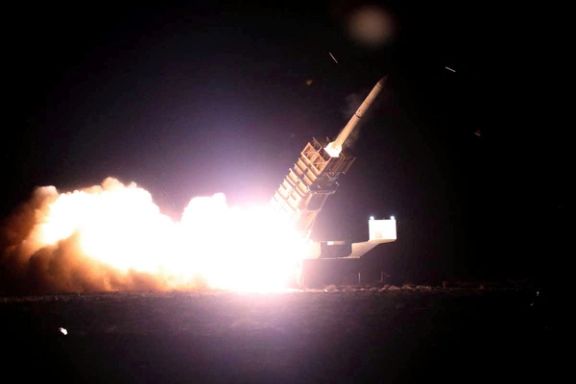US Repeats Threat Against A Nuclear Iran As Pressure Builds

Washington will never allow Iran to acquire a nuclear weapon, the State Department has reiterated, while still insisting that diplomacy with Tehran is preferable.

Washington will never allow Iran to acquire a nuclear weapon, the State Department has reiterated, while still insisting that diplomacy with Tehran is preferable.
State Department spokesperson Ned Price told reporters during his press briefing Wednesday that US policy is clear. “President Biden has a solemn, steadfast commitment to the fact that Iran will never acquire a nuclear weapon. We will never allow that to happen. We continue to believe that the way to address this challenge in a way that is durable, in a way that is permanent, is through diplomacy.”
However, increasingly more members of congress from both sides of the isle are demanding a change of policy regarding negotiations with the Islamic Republic to revive the 2015 nuclear accord, known as the JCPOA. US lawmakers are pushing a few initiatives for bills to censure the Iranian government for its brutal suppression of protests and other malign activities.
Some observers opposed to the JCPOA and the Iranian regime argue that the Biden administration policy of keeping the diplomatic option on the table appears increasingly untenable as Tehran crosses red lines set by the West, including weapons shipments to Russia.
Price tried to drive home the message that for the US all options are on the table. In answering a reporter he said that although diplomacy was “the most effective way”, the administration has “been very clear that we will, through all means necessary, ensure that Iran never acquires a nuclear weapon.”
The latest example of a worrying development in Iran is a report by the UN nuclear watchdog, the IAEA saying that they found uranium particles enriched close to 84 percent, while Iran had previously not surpassed 60-percent enrichment.
Price said, “we are in close contact with our allies and partners in Europe and the region, the broader region, as we await additional details from the IAEA.”
The IAEA Board will meet next week and the agency will submit the official report to member states. Iran and Russia claimed on Wednesday that the issue was a misunderstanding and “has been resolved,” while at the same time they said IAEA chief Rafael Grossi will visit Tehran on Friday. The claims have not been confirmed by the IAEA.
If the UN watchdog submits a critical report, saying there is no satisfactory answer to its finding of highly enriched uranium, the US and its allies will be forced to take action, including triggering the return of international sanctions at the United Nations. Iran has already been censured twice by the Board of Governors in 2022, and another critical resolution will not be taken seriously.
The spectre of a military attack against Iran’s nuclear program has become larger in recent weeks, as Israel has signaled continued preparations to take action if necessary.
A US Defense Department official warned this week that the Islamic Republic could produce enough highly enriched uranium for one bomb in less than two weeks.
The Biden administration has drawn closer to Israel in recent weeks, conducting large-scale joint military exercises in January.
The US ambassador to Israel Tom Nides said in February that “As President [Joe] Biden has said, we will not stand by and watch Iran get a nuclear weapon, number one. Number two, he said, all options are on the table. Number three, Israel can and should do whatever they need to deal with, and we’ve got their back.”